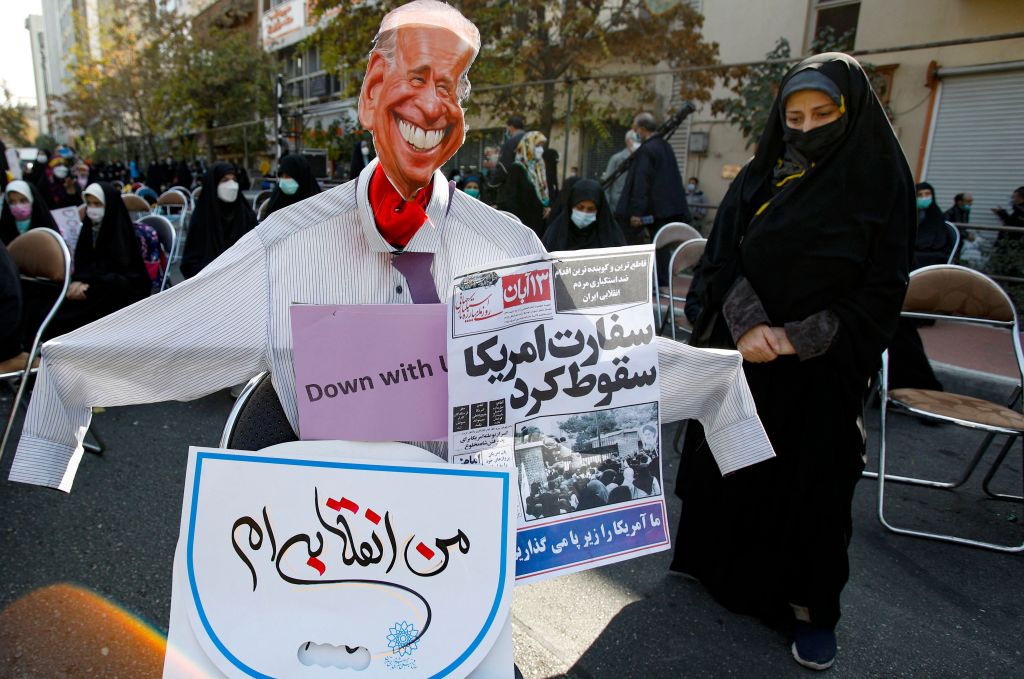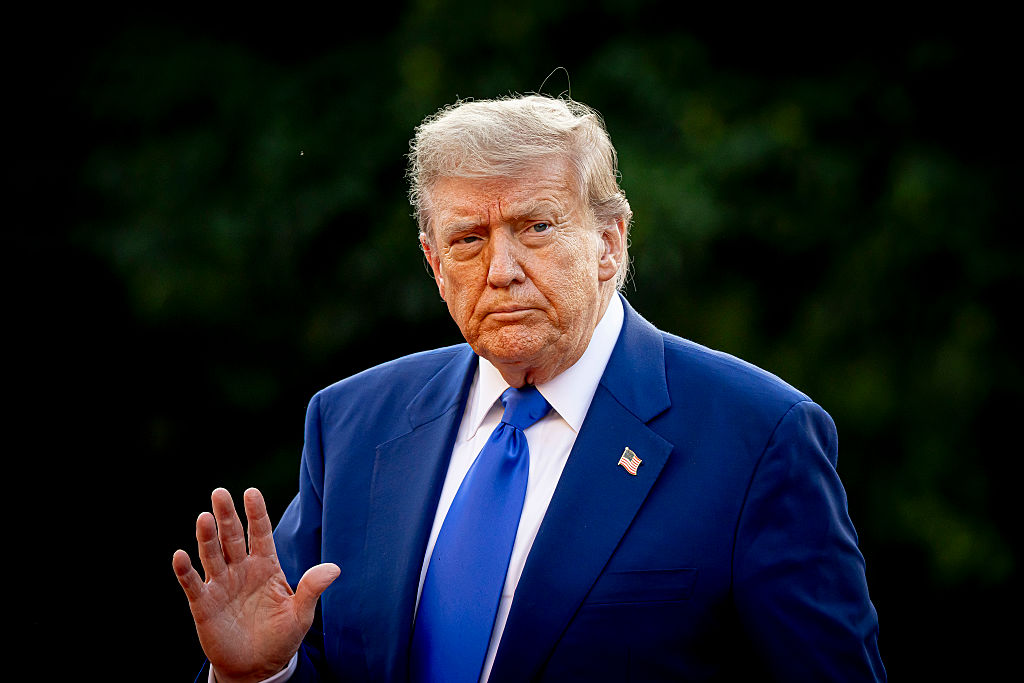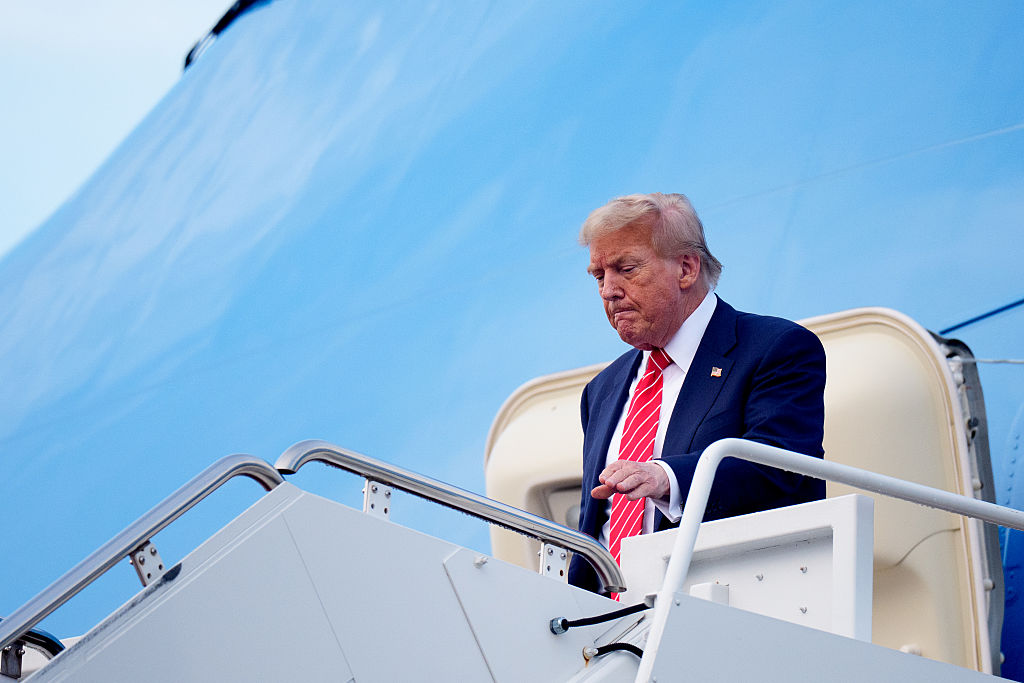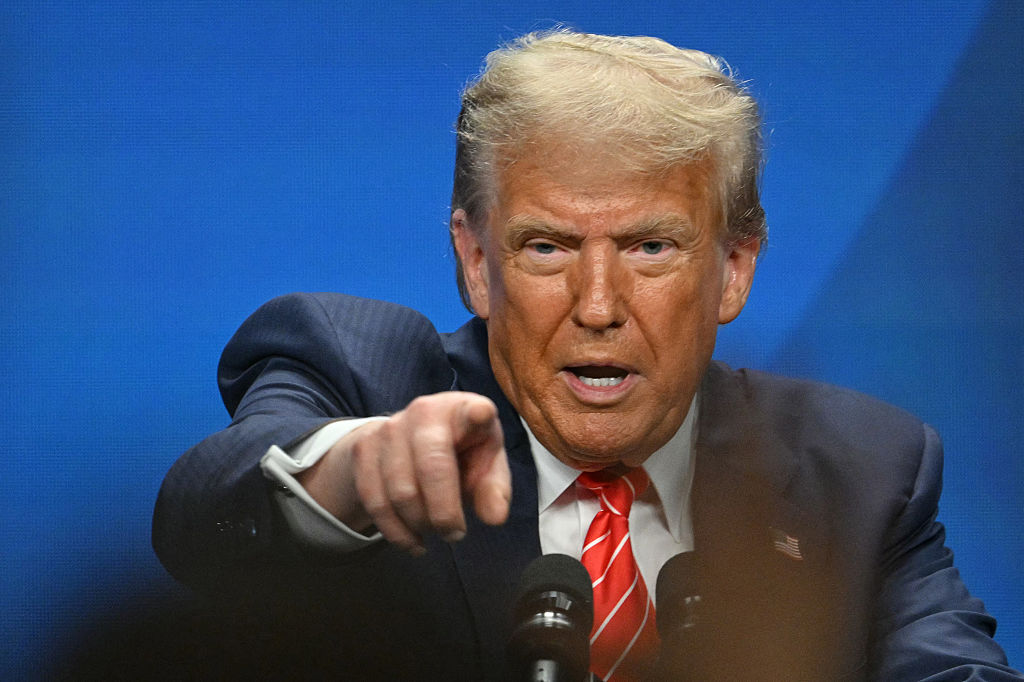While American and Iranian negotiators continue to clash in Vienna, policymakers back in Washington are debating the right course of action should nuclear diplomacy collapse.
Ever since negotiations between the US and Iran resumed in late November after a five-month hiatus, the Biden administration has repeatedly told their Iranian counterparts that Washington’s patience for diplomacy isn’t unlimited. In the ensuing weeks, American officials have grown frustrated by Iran’s hardening stance, including its insistence on verified sanctions relief before Tehran rolls back its own nuclear advances.
According to the State Department, the current round of talks, the eighth since April, are making scant progress toward a mutually agreed-upon resolution. “Iran has, at best, been dragging its feet in the talks while accelerating its nuclear escalations,” State Department spokesman Ned Price said during a December 28 briefing. National Security Adviser Jake Sullivan told reporters that negotiations could be over in a matter of weeks.
Amid little movement in Vienna, crafting a viable alternative to the diplomatic track is increasingly the focal point of discussion. Secretary of State Antony Blinken proclaimed during an October television appearance that “every option is on the table,” the classic Beltway euphemism for the use of military force. Indeed, the Pentagon briefed the White House on military plans to stop Iran from acquiring a nuclear weapon.
Former senior national security officials are also chiming in. Ex-defense secretary Leon Panetta and former CIA director David Petraeus (among others) released a joint statement recommending the Biden administration begin simulating the air-to-ground attacks that would be necessary in any military operation. “Without convincing Iran it will suffer severe consequences if it stays on its current path,” they write, “there is little reason to hope for the success of diplomacy.”
The question, however, isn’t whether the US could bomb Iran’s nuclear facilities — it’s whether it should. And the facts point to an inescapable conclusion: no, it should not.
First, a military operation targeting Iran’s nuclear program wouldn’t be as easy as proponents claim it would. As my colleague Chuck Pena wrote last week, Iran doesn’t house its atomic ambitions in a single building. Its nuclear infrastructure is spread across the entire country, with facilities highly fortified, some of which are buried deep underground. The sophisticated air-defense batteries that surround these facilities would have to be neutralized, as would any other Iranian military weapons systems that could be used to threaten American aircraft. The US also couldn’t foreclose the possibility of losing some aircraft during the operation or that its service members could be captured. Civilian casualties would be likely, and you can bet your bottom dollar the Iranian government would use those casualties for maximum propaganda value.
Second, a military strike wouldn’t solve the Iranian nuclear dilemma. At best, the military option would delay Iran’s program over the short to medium term. To believe the Iranian government would be scared straight and give up its nuclear aspirations after an attack is to totally misunderstand how the Islamic Republic has operated when pushed against the wall.
Previous pressure tactics against Tehran, including sabotage and cyberattacks, have succeeded in destroying centrifuges and complicating Tehran’s nuclear work — but only for a time. Predictably, Tehran eventually recovered from the damage, installed even more high-quality centrifuges, and essentially redoubled its commitment to sporting a top-notch enrichment program. When the godfather of Iran’s nuclear program, Mohsen Fakhrizadeh, was assassinated in November 2020, Iran responded not by cowering into a corner, but by expanding enrichment to 20 percent and depriving the IAEA of its own camera footage.
Third and most importantly, any military operation, however well-planned, would instigate a cascade of retaliation against US troops and military assets in the Middle East, the likes of which would make Iran’s January 2020 ballistic missile attack on an American facility in Iraq look like a walk in the park. While it’s indisputable that Iran would lose in a conventional fight against the US (Iran’s air force is decrepit, its ground forces haven’t fought a war since the 1980s, and its overall military budget is roughly half what the US Navy spent on procurement last year), it’s formidable missile arsenal (the largest in the Middle East) and impressive array of proxies in the region would cause considerable loss of life. And then the US might be forced to retaliate, leading to an even more widespread conflagration.
The ongoing talks in Vienna remain the best (and really only) option to put Iran’s nuclear program back in a box. The military option is a fool’s errand, one whose costs would include an Iran even more determined to accelerate its nuclear work and the start of another war the US has no interest in fighting.

























